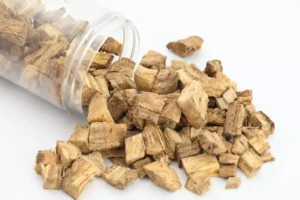
We may be paid a fee for marketing or advertising by organizations that can assist with treating people with substance use disorders. For those who are dealing with addiction to any substance, there is no better time to contact a professional help program than now. For those who feel they are not ready for direct treatment through rehab, they can consider counseling or a program for addicts like them, and their families can attempt to organize an intervention for them. However, with the right treatment and care, with contact from professionals, one can attain complete freedom from alcohol, drugs, and any other forms of addiction.
What is the Transtheoretical Model of Change?
- One widely used model can be summed up in the acronym CHIME, identifying the key ingredients of recovery.
- Recovery is not just about abstaining from substance use; it’s about building a new, healthy lifestyle.
- This means that not everyone addicted to drugs will experience all these symptoms.
- Each person’s journey through the stages of addiction may vary in severity or length, but many go through the same distinct stages in their descent into drug or alcohol addiction.
Complacency or a sense that the work is done once you reach maintenance is often a one-way ticket to recovery relapse. Relapse means the return to drug or alcohol use after a period of abstinence or sobriety. It is common in recovery from active drug addiction and is often seen as a setback rather than a failure. Although relapse is more common in the early stages of recovery, it can happen at any stage and is a complex and multifaceted phenomenon. Drug abuse refers to a pattern of behaviors where an individual uses drugs in a way that leads to negative consequences, but it may not necessarily indicate a full-blown addiction. On the other hand, drug addiction represents a more severe and chronic condition.

What Are The Symptoms Of Active Drug Addiction?
- This stage focuses on addressing the underlying causes of addiction and developing the skills and strategies necessary for sustained recovery.
- Multiple methods, including cognitive and behavioral therapies, peer group support, and other physical and mental health treatments can encourage the person to develop tools for managing this chronic, recurring condition.
- The lead committee will usually examine the Bill through evidence sessions.
- At a certain point, the body or brain becomes dependent on having the substance to be able to function properly.
- Professional treatment is imperative in all cases to impact behavioral processes and to achieve a successful recovery.
These feelings often improve as your brain adjusts and heals over time. Involving your family, friends, or support group can provide the encouragement you need to stay sober. Support groups like AA offer a network of people who understand what you are going through and can offer advice and companionship. Eating balanced meals and staying active not only improve physical health but also boost your mood and energy levels. Sleep hygiene is also crucial; a regular sleep schedule ensures your body and mind can recover properly.
Maintaining Sobriety
The recovery process is not just about stopping substance use; it’s about developing new coping mechanisms and skills to manage cravings and triggers. This journey involves physical, emotional, and psychological healing, and can be influenced by factors such as age, genetics, and life experiences. Seeking professional help, such as addiction treatment, counseling, successful drug addicts and mutual aid groups, provides the necessary support and guidance to achieve and maintain recovery. These resources offer a structured environment where individuals can learn and practice new skills, receive emotional support, and build a network of peers who understand their struggles. The final stage of addiction recovery involves maintenance and aftercare.
Stages of the Addiction Cycle
NIDA supports the HEALthy Brain and Child Development (HBCD) Study, which will follow a large population of mothers and their infants from the prenatal period through age 10. This study aims to better understand healthy development and shed light on how early exposure to cannabis and other substances, stressors, and trauma affect brain development and mental health, and how to reduce adverse outcomes. The idea of returning to “normal” life can be misleading in the context of recovery. Many individuals find that their “normal” before addiction was not functioning well and that their perception of normalcy needs reevaluation.

Healthy Coping Tools Instead of Alcohol Use
Stages of Recovery for a Drug-Free Life

What Are The Early Warning Signs of Relapse?

